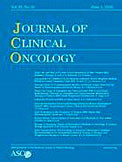Ehlers S, Herbst C, Zimmermann M, Scharn N, Germeshausen M, von Neuhoff N, Zwaan CM, Reinhardt K, Hollink IH, Klusmann JH, Lehrnbecher T, Roettgers S, Starý J, Dworzak M, Welte K, Creutzig U, Reinhardt D. J Clin Oncol. 2010 May 20;28(15):2591–7. Epub 2010 Apr 20. IF: 17.157

Abstract:
PURPOSE: This prospective, multicenter Acute Myeloid Leukemia Berlin-Frankfurt-Muenster (AML-BFM) 98 study randomly tested the ability of granulocyte colony-stimulating factor (G-CSF) to reduce infectious complications and to improve outcomes in children and adolescents with acute myeloid leukemia (AML). However, a trend toward an increased incidence of relapses in the standard-risk (SR) group after G-CSF treatment was observed. PATIENTS AND METHODS: Of 154 SR patients in the AML-BFM 98 cohort, 50 patients were tested for G-CSF receptor (G-CSFR) RNA isoform I and IV expression, G-CSFR cell surface expression, and acquired mutations in the G-CSFR gene. RESULTS: In patients randomly assigned to receive G-CSF after induction, 16 patients overexpressing the G-CSFR isoform IV showed an increased 5-year cumulative incidence of relapse (50 % ± 13 %) compared with 14 patients with low-level isoform IV expression (14 % ± 10 %; log-rank P = .04). The level of G-CSFR isoform IV had no significant effect in patients not receiving G-CSF (P = .19). Multivariate analyses of the G-CSF-treated subgroup, including the parameters G-CSFR isoform IV overexpression, sex, and favorable cytogenetics as covariables, revealed the prognostic relevance of G-CSFR isoform IV overexpression for 5-year event-free survival (P = .031) and the 5-year cumulative incidence of relapse (P = .049). CONCLUSION: Our results demonstrate that children and adolescents with AMLs that overexpress the differentiation-defective G-CSFR isoform IV respond to G-CSF administration after induction, but with a significantly higher incidence of relapse.
-az-
